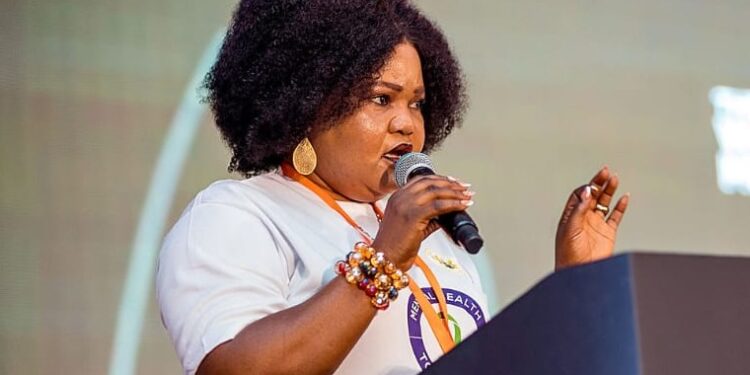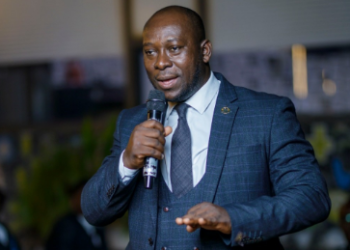The Deputy Chief Executive Officer of the Mental Health Authority, Dr. Vivian Aba Dadzie, has underscored the urgent need for Ghana to embed mental health care into all phases of its national disaster management framework.
She made the comments while delivering an address on behalf of the Chief Executive Officer of the Mental Health Authority during the Wholesome Mind Summit 2025, which coincided with the commemoration of World Mental Health Day on Friday, October 10, 2025
She said the day should not only serve as a symbolic event but also as a call to action and a reminder that “mental well-being is inseparable from national resilience.”
Dr. Dadzie described mental health as a vital yet often overlooked component of national recovery efforts. Quoting an ancient proverb, she said, “When the earth trembles, the wise do not only count the fallen trees, they also listen to the silence that follows. That silence after a disaster is not empty. It echoes with trauma, fear, grief, and resilience.”
She explained that while the nation often rushes to repair the visible damage caused by disasters — such as collapsed buildings, broken bridges, and displaced communities — the invisible psychological wounds remain unattended. “If we mend the body and neglect the mind, we rebuild a nation that stands but does not heal,” she cautioned.
National tragedies
Dr. Dadzie recalled some of Ghana’s most painful moments, including the June 3rd flood and fire disaster, which claimed more than 150 lives; the May 9th Stadium tragedy, where over 120 football fans died; and the Apeatse explosion in January 2022 that devastated an entire community. She also mentioned the recent helicopter crash that claimed the lives of eight national heroes, the Inkor School bus accident, the market fires at Sekondi-Takoradi, and recurring floods in the Western and Central Regions.
According to her, these events remind the country that disasters are not only geological or mechanical but “deeply human.” Each, she said, leaves behind a psychological footprint that affects survivors, first responders, and bereaved families alike. “The trauma persists long after the media lights fade and we are left alone in our homes and communities — wandering, depressed, seeking help and answers that never come,” she observed.
Dr. Dadzie stressed that the true end of a disaster does not come when the flames are quenched or the floodwaters recede but in the healing of minds that have been shaken. “Disasters continue in sleepless nights, in children’s nightmares, and in the quiet withdrawal of once joyful neighbors,” she said.
Policy integration, institutional action
Dr. Dadzie argued that when national disaster response efforts focus solely on physical survival, they fail the people in the long run. “Mental health must not be treated as an afterthought. It must be embedded in our operational, structural, and financial planning at every phase of emergency management,” she urged.
She noted that international best practices — from the World Health Organization to the Inter-Agency Standing Committee — recognize mental health as a life-saving intervention rather than a luxury. “In every emergency, psychological first aid must accompany medical first aid,” she added.
Tribute to frontline workers
The Deputy CEO paid tribute to the security services and emergency responders — including the Ghana Armed Forces, the Police Service, the National Fire Service, the National Ambulance Service, NADMO, and frontline health workers — for their sacrifices during times of crisis. She described them as “often the first to arrive and the last to leave,” adding that they carry “the weight of public expectations, national duty, and often personal trauma.”
Dr. Dadzie called attention to what she described as “secondary traumatization” among frontline workers, urging society to pay attention to their emotional well-being. “I want you to turn to your neighbor and ask, How are you coping? Let this question become a culture. Because our mental well-being affects our ability to function daily, yet we often overlook it,” she said.
Resilient mental health framework
Dr. Dadzie announced that the Mental Health Authority, in collaboration with the Ministry of Health, NADMO, and the Ghana Health Service, is advancing a national agenda to integrate mental health into the country’s disaster preparedness and emergency response systems.
As part of this initiative, she revealed that rapid response psychological teams are being trained across all 16 regions to provide immediate trauma-informed care and psychological first aid during emergencies.
She further reaffirmed that mental health is a cornerstone of national strength and recovery. “Let us remember, “that a nation that rebuilds without healing its people builds on fragile ground. Our progress must include the mind as much as it does the body,” she added.






